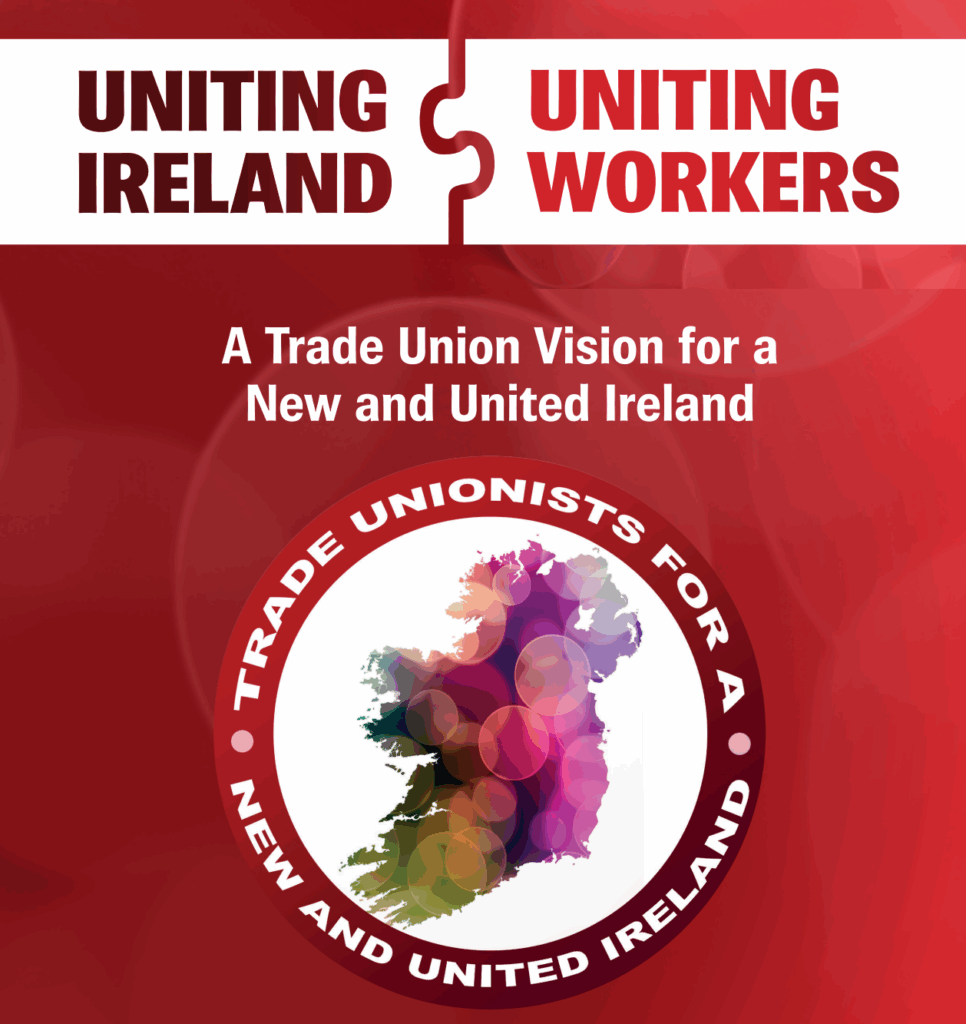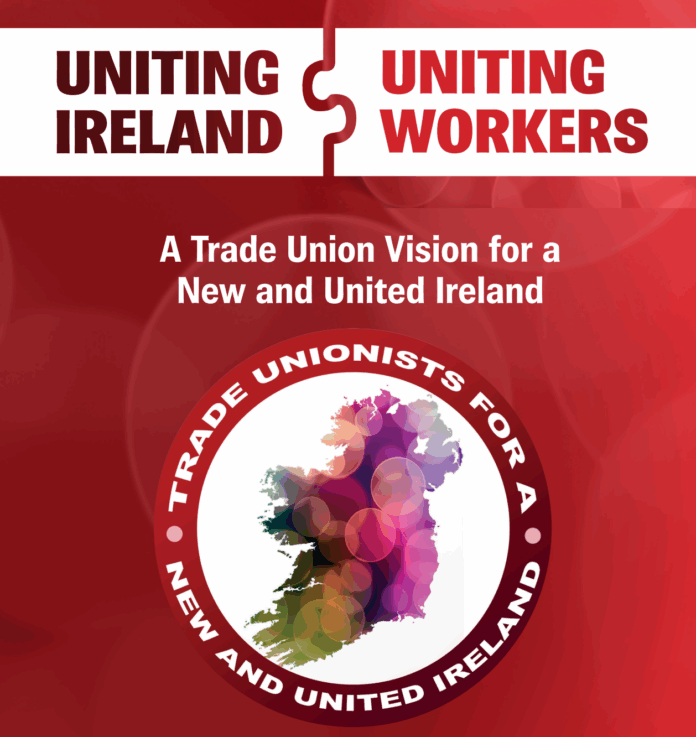Mobilizing Trade Unionists for Irish Unity
By Anne Speed
It was 66 years ago that trade unions organising on the island of Ireland reunited after almost 15 years apart. Economic prospects for workers across the island were dismal, both North and South, living standards were poor and expectations of a better life were rising. The 1950s was truly a dreadful decade, with emigration and poverty at record levels. British administration of the 6 Counties, delivered through the political consolidation of unionism, meant deepening discrimination and unemployment for catholic workers. Trade unionists, influenced by the role of syndicalist James Larkin or socialist James Connolly, recognised the need to galvanise the trade union organisation. There was common cause in fighting for the needs of working people. There was however no common cause in challenging partition.

The Irish Congress of Trade Unions was reborn in 1959, but this time with a Northern Ireland Committee (NIC) constituted to engage with the political administration of the 6 Counties. Over the 66 years since, this has meant enduring periods of direct rule, unionist dominated local governance and, currently, a devolved power sharing government. When the demand for civil rights erupted in the 1960s, strong instincts to challenge Partition were constrained by the imperative to maintain the corporate unity of trade union structures. Many would argue that this was the only path to take. However, it could equally be argued that it was the time to put the democratic demand, the right of the Irish people to accept or reject partition. That question, never put before the people across the island, remains a key question and a key democratic demand.
In the North, years of nationalist exclusion through employment and other forms of sectarian discrimination have been diluted or removed by fair employment legislation and the Good Friday Agreement. Trade unions have adapted to the changing political environment. But our ability to influence economic resilience across the 6 Counties remains intractably constrained by the overarching fact of the political-economic union within the British system. In the South while development of state infrastructure and resources began seriously during the Lemass government, subsequent governments have followed strategies of reliance on foreign direct investment and a turn to acceptance of the predominant interests of European capitalism. This is how we have landed in the lap of European expansionists who are demanding the ending of our military neutrality.
So what now for trade unions?




